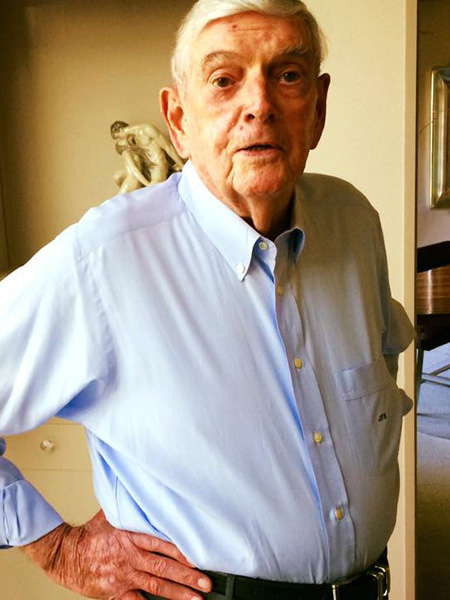Recipient of the Distinguished Flying Cross for heroism in World War II

John F. “Jack” Babbitt Jr.'s life journey is one of valor and engineering prowess. Drafted into the military during his first year at Purdue in 1942, he quickly rose to prominence, piloting a B-17 bomber in perilous missions over Nazi Germany as the lead plane in a squadron that numbered as many as 1,000 U.S. planes. Despite overwhelming odds, Babbitt completed 30 combat missions, his aircraft bearing the scars of more than 220 bullet holes from enemy fire. After the war, Babbitt returned to Purdue, graduating with a bachelor’s degree in chemical engineering in 1948. His engineering career took off as he contributed to projects including the Girdler and the Hydrogen Bomb. Later, he served as president of First Mississippi Corporation and Agrico Chemical Company. Babbitt subsequently founded Devco International, Devco Overseas Company, and other personally owned companies to design, build and operate plants using the Kellogg Process to synthesize commercial chemicals like fertilizer. The plants Babbitt was responsible for constructing around the world have prevented the starvation of millions and made food more abundant by providing cheap and plentiful fertilizer, sparing more environmentally damaging mining methods. Purdue honored Babbitt with an Outstanding Chemical Engineer Award in 2020. In addition, the U.S. Armed Forces recognized his heroism in World War II with a Distinguished Flying Cross.
